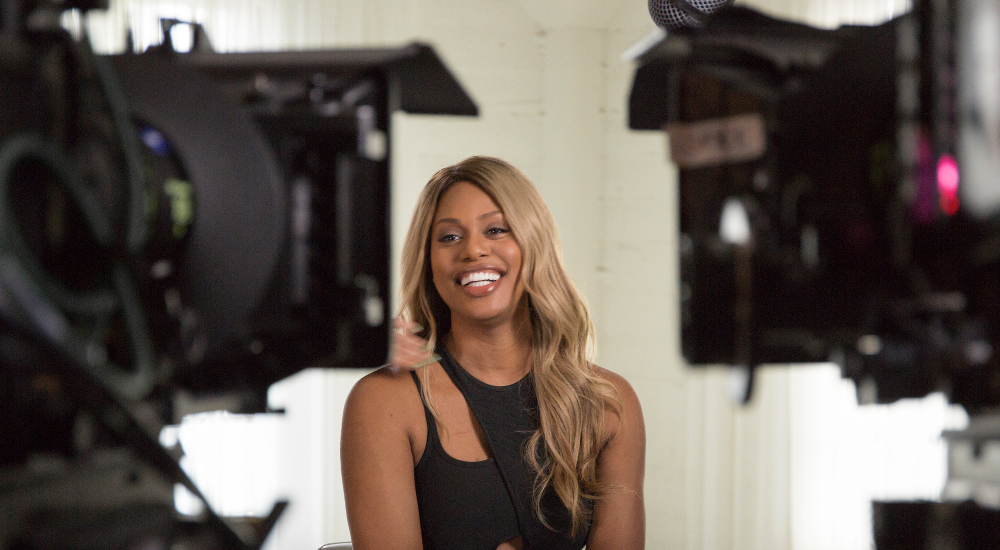“As a trans person, you have the most sensitive radar to tell the difference between [whether] you’re laughing with us or you’re laughing at us.”
Though historically present, the transgender community has been fighting for decades to see adequate and accurate representation within the film and television medium as they yearn for acceptance and inclusion within the industry. Their fight, internally stern and fierce, hasn’t been easy, even as shows like Transparent and Pose work to enact change and bring a sense of mainstream notoriety to the people who live and breathe its stories. Sam Feder’s Disclosure showcases the linage of hurtful stereotypes and uneducated assumptions, leaving no stone unturned as the film highlights the heart and soul of a group of people who long for nothing more than a platform to speak their truth.
Executive produced by superstar Laverne Cox and featuring commentary by some of the biggest names within the fearless community, Disclosure is a simple film in both context and approach. Still, it is enormously impactful to those who are willing to sit, listen, and process with an open heart and mind.
Refusing to preach or default to the politics of the situation, Feder successfully works within the confines of a structured approach. Though the film proves nothing extraordinarily new in regard to direction, the move allows the film to focus on its players, those sitting in the chair, many for the first time, telling their own story. It’s a bold choice, as the film deals with a subject matter that many consider uncomfortable, though that discomfort often stems from a lack of education.
Ignorance, in all its fluff and beauty, rests at the center of many issues, the transgender community included. In less than two hours, Disclosure successfully presents a detailed historical account of trans character inclusion within the highly competitive film and television industry. But the film goes beyond the orderly as it showcases the history from an honest first-person perspective. Hearing community members speak for themselves, unedited and unscripted, highlights what makes this film so unique; these men and women are allowed to tell their own story, even if it isn’t entirely positive.
Realistically speaking, positive representations of transgender men and women are rare to blatantly non-existent. And the issue, while easily recognizable in this film, isn’t always fully realized in the broader scope of the industry. Disclose points out that though shows such as The L Word and Nip/Tuck worked to be inclusive, they failed on the point of depiction. Meanwhile, nearly every crime show on primetime television continues to exploit a trans actors’ identity to highlight a hate crime or a psychotic villain. Rarely is the portrayal shown in a clear, authentic, and dare I say supportive light, bringing with it a social stigma that is difficult to counteract.
From the butt of the joke to the right of passage for every black comedian, it’s hard not to detect a fundamental misstep throughout history that has plagued the community’s growth and advancement of accurate representation. Films like Boys Don’t Cry, Ace Ventura, The Danish Girl, and Paris is Burning have all shaped the conversation around those living as transgender. For both better and worse, Disclosure is a film that exists to autocorrect and set the narrative straight.
*This film is streaming globally on Netflix.

